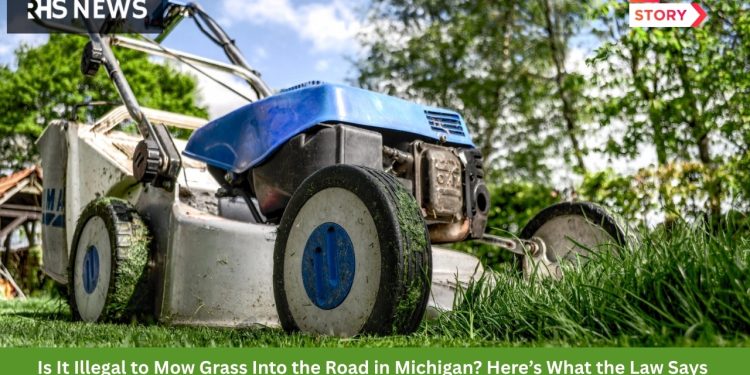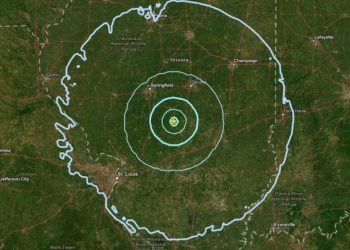Spring and summer bring vibrant green lawns across Michigan, and with them, the familiar hum of lawnmowers. Most property owners believe they’re simply maintaining curb appeal, but many don’t realize that the act of blowing grass clippings into public roads can have legal consequences.
This article delves into Michigan’s regulations on lawn maintenance, answering the central question: Is it illegal to mow grass into the road in Michigan? We’ll examine state law, local ordinances, environmental concerns, enforcement practices, penalties, and best practices for responsible lawn care.
The Letter of the Law: Michigan’s Stance on Grass Clippings
State Regulations
Michigan does not have a broad, statewide statute that explicitly bans mowing grass directly into the road. However, certain legal frameworks indirectly regulate this practice. The Michigan Vehicle Code prohibits the obstruction of public roadways, and grass clippings can be interpreted as a potential hazard, especially when wet, as they can reduce traction for motorists and cyclists. This increases the risk of accidents, particularly for two-wheeled vehicles.
Furthermore, the Michigan Natural Resources and Environmental Protection Act (NREPA) broadly prohibits pollution of state waters. When grass clippings are washed from roadways into storm drains, they can enter local waterways, contributing to nutrient pollution (eutrophication), which stimulates algae blooms and harms aquatic ecosystems. This can lead to violations under environmental protection laws.
Local Ordinances
Many Michigan municipalities have taken matters into their own hands by adopting local ordinances that specifically address grass clippings. For example:
-
Traverse City: Prohibits depositing yard waste, including grass clippings, onto public streets, sidewalks, and alleys. Violators can face fines.
-
Ann Arbor: Has similar restrictions, emphasizing that grass clippings should be contained on the property or properly composted.
-
Grand Rapids: Encourages residents to keep clippings on their lawns to prevent them from entering stormwater systems, in line with broader environmental goals.
These local rules are enforceable, and residents are responsible for knowing the specific regulations in their community.
Why Is Mowing Grass Into the Road a Concern?
Safety Hazards
Grass clippings on roadways can create slippery surfaces, especially when wet, increasing stopping distances and the likelihood of skidding. Motorcyclists and bicyclists are particularly at risk, as even a thin layer of clippings can reduce traction significantly.
Environmental Impact
When grass clippings enter storm drains, they eventually reach rivers, lakes, and streams. The nutrient load from decomposing grass—primarily nitrogen and phosphorus—fuels excessive algae growth. This process, known as eutrophication, depletes oxygen in the water, harming fish and other aquatic life. Michigan’s lakes and rivers, which are central to the state’s identity and economy, are especially vulnerable to this type of pollution.
Infrastructure Maintenance
Clogged storm drains from grass clippings can lead to localized flooding during heavy rains. Municipalities must allocate additional resources to clear these blockages, increasing maintenance costs for taxpayers.
Enforcement and Penalties
How Are Violations Enforced?
Enforcement of grass clipping laws varies by locality. In cities with specific ordinances, code enforcement officers may issue warnings or fines if they observe violations. Citizen complaints can also trigger inspections. In areas without explicit rules, police or public works departments may intervene if grass clippings create a demonstrable safety hazard.
Potential Penalties
-
Fines: Municipalities with ordinances may impose fines ranging from $50 to $500 for repeat offenders.
-
Cleanup Costs: Violators may be required to pay for the cost of cleaning up clippings from public areas.
-
Environmental Penalties: In cases where clippings contribute to water pollution, the Michigan Department of Environment, Great Lakes, and Energy (EGLE) may pursue enforcement action under state environmental laws.
Best Practices for Responsible Lawn Care
Keep Clippings on the Lawn
The simplest and most effective practice is to direct clippings back onto the lawn. This not only avoids legal issues but also returns nutrients to the soil, reducing the need for additional fertilization.
Use a Bagging Mower
For those concerned about excess thatch or aesthetics, a bagging mower collects clippings, which can then be composted or disposed of as yard waste, per local guidelines.
Compost Clippings
Composting grass clippings is an eco-friendly solution that enriches garden soil. Many Michigan communities offer composting workshops or facilities.
Follow Local Guidelines
Always check your city or township’s website for specific rules regarding yard waste disposal. When in doubt, contact your local public works department.
The Bigger Picture: Environmental Stewardship in Michigan
Michigan’s abundant freshwater resources are a source of pride, but they require active protection. Small actions, like proper disposal of grass clippings, contribute to the health of lakes and rivers. By adopting responsible lawn care habits, residents help preserve Michigan’s natural beauty for future generations.
What To Do If You See a Violation
If you observe someone routinely mowing grass into the road, especially in a community with a known ordinance, consider:
-
Educational Outreach: A friendly conversation can often resolve the issue.
-
Reporting: Contact your local code enforcement or public works department if the problem persists.
-
Community Involvement: Advocate for clearer signage or public awareness campaigns in your neighborhood.
Conclusion
Mowing grass into the road in Michigan may not always violate a specific statewide law, but it often runs afoul of local ordinances and broader environmental protections. Grass clippings on roadways pose safety risks, environmental hazards, and unnecessary burdens on municipal resources. Responsible lawn care—keeping clippings on your property, composting, and following local guidelines—is not just good practice; it’s a civic duty. By understanding and adhering to these standards, Michigan residents can maintain beautiful lawns while protecting their communities and natural resources.









